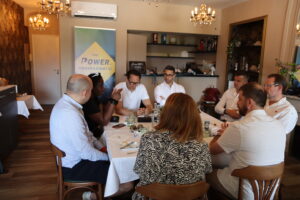The WFA has launched Sustainable Marketing 2030 to encourage brands to close the gap between intent and action when it comes to sustainability.
While fewer than half of marketing departments have taken the lead in their sustainability journeys, 41% say they now have a sustainability story they are proud to communicate, up from 25% in 2021.
The new research from the WFA was carried out in partnership with Kantar’s Sustainable Transformation Practice. It found the largest share (39%) still only taking the first steps on their sustainability journeys.
The research found capability gaps were cited by 35% versus 20% in 2021.
However, 90% of marketers agreed that sustainability agendas must be more ambitious, with 94% saying marketers need to act more bravely and experiment to drive transformative change. This is reflected in more brands now having sustainability as a KPI in their marketing dashboards – up from 26% in 2021 to 43% in 2023.
82% said companies need to be braver in communicating their sustainability efforts, with 41% of brands now saying they have a sustainability story and are proud to share it, compared to 25% in 2021.
Fifty-four per cent agreed with the need to educate people about their choices and actions, reflecting the insight that marketing must seek to drive and normalise new sustainable behaviours – both internally and externally.
The top challenges identified are organisational issues: lack of internal resources (35%), knowledge and skills gap (35%), organisational mindset (32% said that sustainable solutions are perceived as costly), the lack of a P&L policy that protects the planet (35%), and a lack of transparency in measurement (30%).
Other key findings on Sustainable Marketing 2030 included:
· A job for all: Sustainability does not neatly fit into one function and is increasingly seen as a job for all. A lack of standardised measurement to provide a common language and monitor progress is a recurring challenge, alongside a seemingly perpetual knowledge gap (35% in 2023 vs 20% in 2021).
· An opportunity for marketing: The marketing function is still lagging compared to the rest of the business two years on. Sustainable transformation is still seen as a responsibility and an opportunity for marketing. Marketing has the budget and authority to better activate sustainability within the strategic agenda versus sustainability departments or other functions in isolation.
· The scale of the challenge: As people become more aware of the response required to solve issues like the climate crisis, they understand that what their organisations are currently doing is not enough, despite making meaningful progress. As a result, organisational confidence is down, with fewer performing in the top bracket, from 29% in 2021 down to 15% in 2022.
“Marketers are finally starting to grasp the scale of the sustainability challenge, particularly the climate crisis. We have reached the point where the status quo is no longer an option. Radical transformation is essential. We passionately believe that marketers are uniquely placed to drive the change we need on account of their unique creativity, innovation and communication skillset. The Sustainable Marketing 2030 initiative focuses on how marketers can drive growth while embracing the sustainability agenda,” said Stephan Loerke, WFA CEO.










